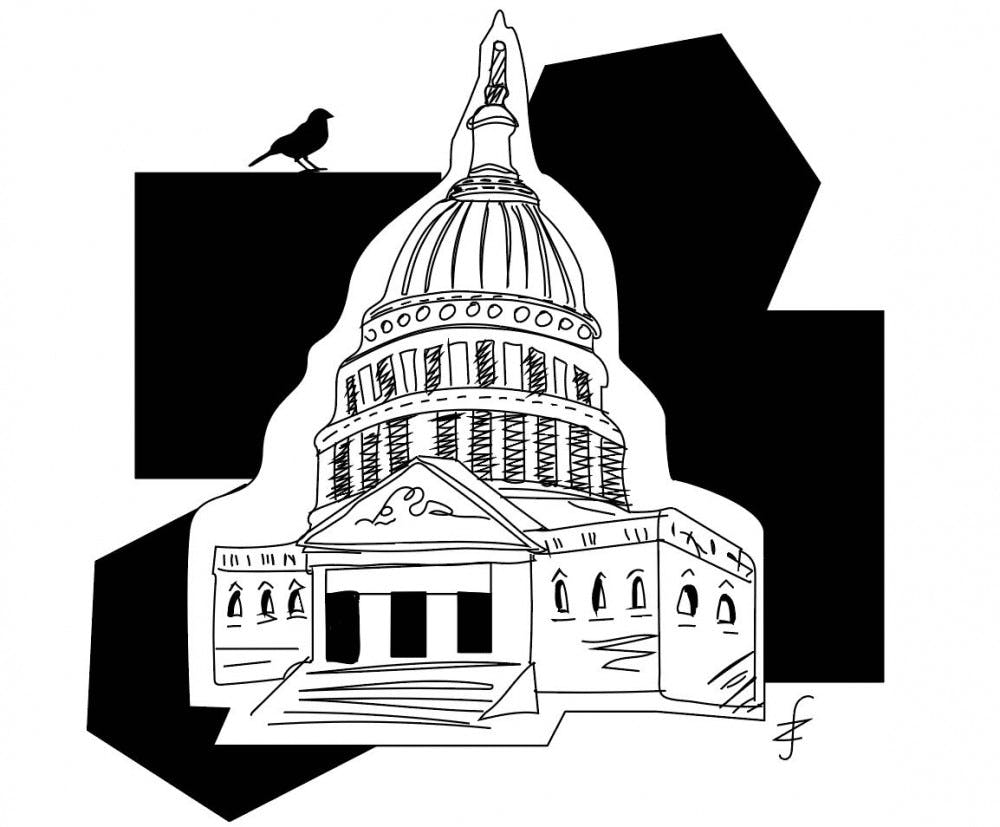My favorite quote about American elections is from political scientist Alexis De Tocqueville, who in 1835 described our process of electing a president as “a time of national crisis. As the election draws near, intrigues intensify and agitation increases and spreads. The citizens divide into several camps, each behind its candidate. A fever grips the entire nation.” In today’s era, we often wonder how our government has become so bitterly polarized. But we forget that elections throughout our history have proven that our system lends itself perfectly to producing bitter divisions that only catastrophes have the power to bridge.
In fact, crisis response is in large part what makes the presidency such an attractive institution for so many Americans. We value our presidents most when they perform their most obvious role, which is — you guessed it — the crisis manager. Whether it was the American Civil War, the Great Depression or 9/11, presidents are always most popular when they fight for us in times of need or rally the country against a common threat. This narrative of bravely fighting back against the difficulties facing us all is an incredibly comforting one; but the degree of executive autonomy necessary to enable this ability can introduce unnecessary risk into the governing process, and it doesn’t have to be that way.
Despite the seemingly critical role it plays in American government, the presidency was by no means designed by the founders of our nation to be as central or as powerful as it became. There exists today a certain mythology around the presidency that has only developed as executive power has increased over time; in fact, the specifics of the structure of the executive branch were deferred until very late in the constitutional convention because the position of the executive was conceived by most as one voted on by Congress, and without the powers to declare war, make treaties or appoint judges. In the end, many of the final powers were approved because of the confidence that, as wielded by George Washington, they would pose no threat to the union.
But as both the powers and responsibilities of the U.S. president have increased dramatically over time, the ripples of any given president’s reactions have morphed into global waves. The level of influence the president wields was by no means foreseen by the American public. The position that we would recognize today is not only an exaggerated form of the constitutional mandate, but one whose few enumerated powers were likely passed because the majority of the signers were too tired after months of debate to resist. Many would argue that the value of the presidency today lies in its ability to effect change directly and focus national political will, but while it is comforting and marginally more efficient to have a “captain of the ship” responsible for making tough decisions, the indispensability of the president becomes less obvious when you dig a little deeper. It certainly does not justify the risks posed by a rogue president ever gaining office.
President Trump has proven a lot of things about America: a lot of things we’d rather not admit are true, like the ease with which legislative progress can be completely reversed. Perhaps more importantly, however, he has proven that the instability presented by a bad president is far greater than the potential benefit of a good one. As a proximate representative of the American people, the president’s mere words can at best maintain the dignity of the office, but at worst can damage the international enforceability of human rights norms, embolden strongmen in their power grabs and political assassinations and isolate the American economy in an increasingly interconnected world. The complexity of the modern United States and the now-global effects of the slightest decisions make the risk of unintended consequences far greater than the potential benefit of a quick reaction.
Regardless, maybe it’s time we realize the office of the president puts too much at stake for the slim benefits it offers in return. Whatever comfort is provided to voters by having a champion in a time of need is not hard to outweigh; as it stands, the options are a potentially more swift response to crises and threats on the one hand, but the loss of international credibility and severe damage to valuable institutions on the other. The viability (not to mention desirability) of a weaker executive institution is apparent: Benjamin Franklin, James Madison and George Mason, for example, supported an executive council instead of a single president. Such a body, much like the modern cabinet — or those of countries like Switzerland, which is governed by a council of ministers — would consist of experts in their departments who would have independence to create policy in their areas of knowledge but would also provide a check on each others’ capacity to make unfounded political claims, spend taxpayer dollars on personal benefits or blatantly obstruct federal investigations. It is clearer than ever that we cannot reasonably expect, like the founders did, that our office of the president as we know it will put the needs of the nation before personal or partisan gain when we need it to.
Benjamin Bosis ’19 can be reached at benjamin_bosis@brown.edu. Please send responses to this opinion to letters@browndailyherald.com and op-eds to opinions@browndailyherald.com.





